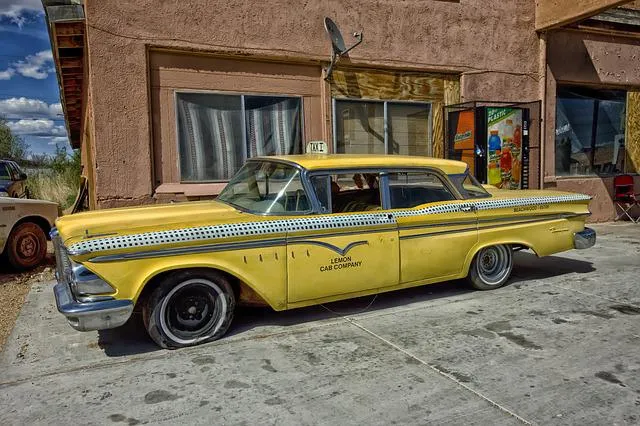Over the years, the world of racing games has seen a surge of varied and qualitatively quite exciting titles. A positive factor for the industry, which still sees an audience extremely interested in motorsport video games. Among the many companies that deal with developing experiences of this kind, Codemasters is definitely one of the most active and concrete, both with sim / arcade products like F1 and with more arcade and spectacular games like Dirt. Among the countless products in the catalog, GRID is certainly one of the most interesting intellectual properties, being now one of the very few arcade racing adventures on city and other circuits, seen by many as a true spiritual heir of the unforgettable Project Gotham Racing. Three years after the reboot of the series, the British team is now preparing to launch GRID Legendswith the aim of smoothing out the defects of its predecessor and entering the hearts of the fans most loyal to the franchise.
Over the past week we have thrown ourselves on the track, doing as many doors as possible and verifying all the promised improvements, focusing in particular on the unprecedented “Story” mode with real actors. We are therefore ready to tell you something more about GRID Legends, a title that despite its flaws has nevertheless proved solid and fun as a whole, proving to be an accessible and immediate arcade game.
GRID Legends: a world of racing
Codemasters has certainly not spared itself with the content of GRID Legendsoffering us the opportunity to create customized races to our liking, compete online (also using cross-play with other platforms) and immerse ourselves in the inevitable career or in the new story mode, “Driven to Glory”, which we will later go to analyze separately.
As a whole, the playful possibilities are many and for all tastes, also considering that the races are not limited only to overtaking to reach the first place, but also to elimination events (where the expiry of a timer expels the last players in the race) or score-based drift races.
It is clear that the greatest fun (as in previous GRIDs) is the career, in which our job is to play from amateur races up to professional events. From this point of view, its structure is not particularly original, allowing us to choose the various categories of participation and unlocking new races and events every time to advance. The aim is the same as always: complete the sponsor challenges and collect credits to try to buy all the over 120 cars in the game (including Ferrari, Aston Martin, Nissan, Porsche etc) and the related upgrades obtainable by reaching certain required criteria. An applause also goes to the variety of circuits present in the game, varied in the settings, managing to alternate real tracks and fictitious city circuits (Moscow, London…).
What left us with a bit of a bad taste in the mouth is undoubtedly all the customization part, perhaps a bit limited for a racing game and focused on pre-set liveries, modifiable set-ups and the creation of a personal team. The possibility of unlocking points to be assigned to improve the skills of our teammate or improve the technical quality of our cars is interesting, but it is a system that has little influence on the continuation of the career.
When it comes to life, however, the fun is definitely guaranteed, thanks above all to a lean and accessible driving model where everyone can have fun without particular worries dedicated to the difficulty, where the latter is however completely scalable to meet all types of players.
We must always remember that we are still talking about an arcade racing game and therefore without all that simulation component seen in other games, but this does not mean that the experience is too easy or that it is enough to collide to get to the finish line, indeed, with the increasing the difficulty, racing clean and keeping the car on the track is not as simple as it might suggest.
An added value towards a title that was able to learn from the mistakes of the past and improve an AI that in the past did not always seem concrete. Let’s be clear, we are not yet at Forza Motorsport’s Drivatar levels, but the improvements are noticeable, especially with the higher difficulties. At least now the competitors try to block us from overtaking and attempt unpredictable extensions, some even risk going off the road at the home of a curve taken too wide.
In addition to this there is also the new Nemesis System, which allows the rivals that we annoy the most to cause us problems during the race (perhaps throwing us a few more doors). A model that helps to make events more dynamic, even if we have not noticed any particular upheavals in this sense.
Driven to Glory
One of the great innovations introduced in GRID Legends is certainly “Driven to Glory”, the new story mode with real actors and a narrative model based on fictitious interviews and set up as if it were a huge documentary, using virtual production techniques. ‘high profile similar to those seen in The Mandalorian on Disney +.
Several actors have been hired to tell the story of Seneca Racing (definitely stands out Ncuti Gatwa, best known for the popular Netflix series, Sex Education), an automotive team led by Marcus Ado who for years has been trying in vain to hire a second talented driver to work alongside the first driver Yume Tanaka.
After numerous failures and lost bets, Marcus Ado tries a new risky attempt with the mysterious number “22” (or us), a driver who managed to surprise everyone during some qualifying races for the GRID World Series.

In the approximately 10 hours necessary to complete the story (mainly characterized by specific events and competitions), we certainly enjoyed ourselves and all in all we are talking about one more mode that increases the variety of the GRID Legends offer. However, it should still be specified that Driven to Glory is nothing particularly original or surprising, staying anchored to classic clichés and average acting. In general, the choice with the actors was very reminiscent of some past productions, but we think that the narrative model introduced with F1 2021 was more immersive than the use of real actors.
Sense of speed
For those who have had the opportunity to play the previous GRID (2019) will certainly remember a visual impact certainly not at the top. From this point of view GRID Legends does not make a real leap forward, more if anything a small step that enhances the particles of the doors and the races in dynamic weather conditions. In general Codemasters preferred to focus more on fluidity compared to the overall graphic quality, this is demonstrated by the fact that the next-gen versions can guarantee (in case of having a monitor or TV set up) 120 FPS, while maintaining the resolution in dynamic 4K standards.
This choice certainly does not enhance the game from a visual point of view, how much more from that related to the gameplay (which is not necessarily a defect). Therefore, do not expect a graphically impressive product like Forza Horizon 5 or even just like the excellent Dirt 5 (also by Codemasters), but at least you can be sure to find yourself playing with a fluid and solid racing game on the performance side.

And on the audio sector? Codemasters did a good job: the sound design satisfies during the race and between calls with their team and the quality of the roar of the engines certainly cannot be disappointed. To underline the excellent sound tracks designed for races (especially in Driven to Glory) which greatly enhance the challenges on the track, a detail that is often underestimated but which in this case is worth promoting.


